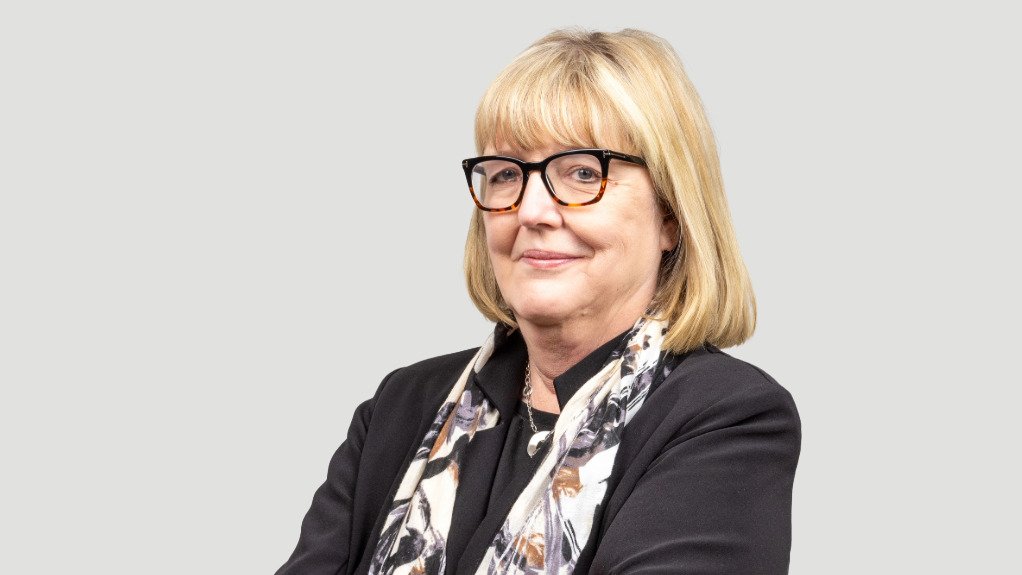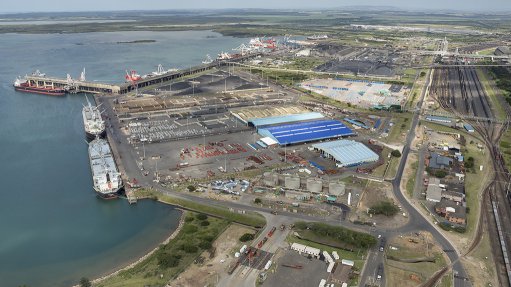Council for Geoscience launches multifunctional National Data Centre that fulfils nuclear monitoring obligations



CGS junior scientist seismologist Tamara Makhateng
Deidre Penfold, councillor at the South African Council for the Non-Proliferation of Weapons of Mass Destruction, the South African National Authority to the CTBTO
The Council for Geoscience (CGS) has launched a National Data Centre (NDC), which incorporates a capacity-building system installed by the Provisional Technical Secretariat of the Comprehensive Nuclear-Test-Ban Treaty Organisation (CTBTO).
The NDC will assist in global efforts to monitor for the testing, explosion and development of nuclear devices.
Speaking to Engineering News, CGS junior scientist seismologist Tamara Makhateng explained that the NDC aimed to enhance South Africa’s participation in the CTBTO and contribute to global nuclear monitoring efforts.
“Historically, CGS has actively participated in some of the meetings and workshops held by the CTBTO and this is a great step towards putting South Africa, and Africa, on the world map so that we can also actively participate as much as other NDCs in Europe do,” she said.
According to the CTBTO, South Africa has two NDCs - the South African Nuclear Energy Corporation – for radionuclide technologies – and the CGS – for waveform technologies.
The CTBTO and its members make use of the International Monitoring System (IMS) to monitor a range of phenomena, including earthquakes, volcanic eruptions, meteor strikes and non-nuclear explosions.
The CTBTO’s International Data Centre, in Vienna, Austria, draws on four IMS monitoring technologies – seismic, hydroacoustic, infrasound and radionuclide – to detect possible nuclear explosions around the world.
The organisation notes on its website that seismic, hydroacoustic and infrasound technologies are used to monitor waveform data from seismic and acoustic waves that move through the Earth, the oceans and the atmosphere. That data can then be used to help identify the location of an event and to determine if it is natural or potentially man-made.
South Africa is host to three IMS seismic stations and one infrasound station.
“South Africa places extreme importance on disarmament and non-proliferation issues and, as such, has promulgated relevant legislation and established intergovernmental structures to ensure adherence with such obligations,” said Deidre Penfold, councillor at the South African Council for the Non-Proliferation of Weapons of Mass Destruction, the South African National Authority to the CTBTO.
Although the data collected and processed by NDCs is primarily meant for monitoring against nuclear tests, Penfold sayid there were also many civil applications such as the detection of earthquakes, the monitoring of isotope concentrations and the movement of radionuclide particulate plumes.
The collected data could be used by South African researchers to conduct studies that could be of benefit to the country.
Makhateng explained that the NDC allowed the CGS, as well as universities and other research institutions, to have more direct access to international data.
“We act almost as a middle man to allow people to come here and have a look at the data, see what data they need and we then assist them in being able to register to access the data to be able to work on their own research,” she said.
Meanwhile, Penfold pointed out that there were also plans to establish a radionuclide IMS station with a dual monitoring capability for noble gas and particulates in South Africa.
Article Enquiry
Email Article
Save Article
Feedback
To advertise email advertising@creamermedia.co.za or click here
Press Office
Announcements
What's On
Subscribe to improve your user experience...
Option 1 (equivalent of R125 a month):
Receive a weekly copy of Creamer Media's Engineering News & Mining Weekly magazine
(print copy for those in South Africa and e-magazine for those outside of South Africa)
Receive daily email newsletters
Access to full search results
Access archive of magazine back copies
Access to Projects in Progress
Access to ONE Research Report of your choice in PDF format
Option 2 (equivalent of R375 a month):
All benefits from Option 1
PLUS
Access to Creamer Media's Research Channel Africa for ALL Research Reports, in PDF format, on various industrial and mining sectors
including Electricity; Water; Energy Transition; Hydrogen; Roads, Rail and Ports; Coal; Gold; Platinum; Battery Metals; etc.
Already a subscriber?
Forgotten your password?
Receive weekly copy of Creamer Media's Engineering News & Mining Weekly magazine (print copy for those in South Africa and e-magazine for those outside of South Africa)
➕
Recieve daily email newsletters
➕
Access to full search results
➕
Access archive of magazine back copies
➕
Access to Projects in Progress
➕
Access to ONE Research Report of your choice in PDF format
RESEARCH CHANNEL AFRICA
R4500 (equivalent of R375 a month)
SUBSCRIBEAll benefits from Option 1
➕
Access to Creamer Media's Research Channel Africa for ALL Research Reports on various industrial and mining sectors, in PDF format, including on:
Electricity
➕
Water
➕
Energy Transition
➕
Hydrogen
➕
Roads, Rail and Ports
➕
Coal
➕
Gold
➕
Platinum
➕
Battery Metals
➕
etc.
Receive all benefits from Option 1 or Option 2 delivered to numerous people at your company
➕
Multiple User names and Passwords for simultaneous log-ins
➕
Intranet integration access to all in your organisation




















